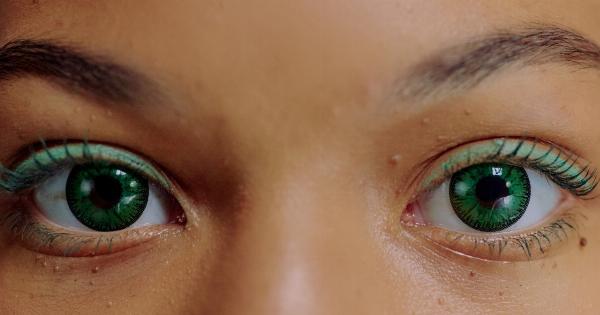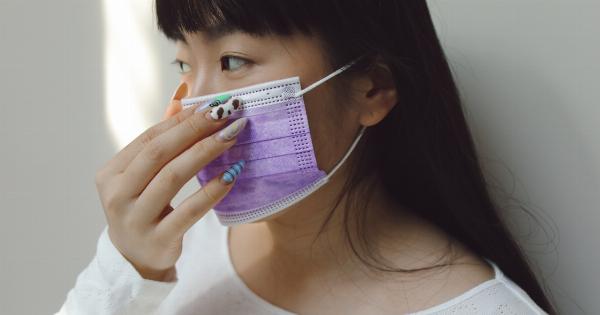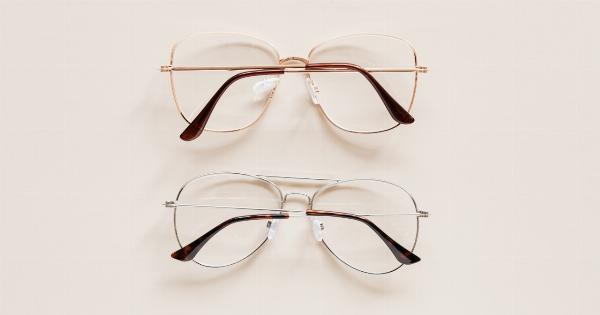When it comes to contact lenses, proper care and maintenance are essential in order to maximize their lifespan. With the right practices and habits, you can ensure that your contact lenses stay clean, comfortable, and effective for as long as possible.
In this article, we will discuss various tips and techniques to help you extend the lifespan of your contact lenses.
1. Clean Your Hands Thoroughly
Before handling your contact lenses, it is crucial to clean your hands thoroughly with soap and water. This step helps eliminate any dirt, oils, or bacteria that could potentially transfer to your lenses, leading to irritation or infections.
2. Use the Recommended Solution
Each type of contact lens requires a specific cleaning solution. Make sure to use the solution recommended by your eye care professional. Using the wrong solution can damage the lenses or fail to remove deposits effectively, shortening their lifespan.
3. Clean and Disinfect Regularly
Clean and disinfect your contact lenses as advised by your eye care professional. This typically involves using a multi-purpose solution or a hydrogen-peroxide-based system.
Regularly cleaning and disinfecting your lenses helps remove debris, protein deposits, and microorganisms that can build up over time.
4. Replace the Solution in the Case Daily
After each use, empty the storage case and rinse it with fresh solution. Avoid reusing or topping off the solution in the case, as it may be contaminated.
Keeping the case clean and using fresh solution every time can prevent bacterial growth and maintain lens hygiene.
5. Follow the Recommended Replacement Schedule
Contact lenses have specific replacement schedules, such as daily, bi-weekly, or monthly. It is essential to follow these guidelines and replace your lenses as instructed.
Wearing lenses beyond their recommended lifespan can cause discomfort, reduce visual clarity, and increase the risk of eye infections.
6. Avoid Sleeping or Swimming with Contact Lenses
Although some contact lenses are approved for overnight wear, it is generally best to remove them before sleeping. Sleeping with lenses can increase the risk of eye dryness, irritation, or infections.
Similarly, it is important to avoid swimming or exposing your lenses to water, as it can introduce harmful microorganisms and damage the lenses.
7. Handle with Care
When handling your contact lenses, be gentle and avoid applying excessive force. Avoid using nails or sharp objects that can damage the lens surface. Additionally, exercise caution while inserting or removing the lenses to prevent tears or scratches.
8. Keep Your Lens Case Clean
Regularly cleaning your lens case is essential for maintaining lens hygiene. After each use, rinse the case with the recommended solution, wipe it with a clean tissue, and leave it to air dry.
Replace your lens case every three months, or sooner if it becomes damaged or contaminated.
9. Avoid Using Expired Lenses
Always check the expiration date of your contact lenses. Using expired lenses can lead to discomfort, reduced visual acuity, and an increased risk of eye infections. Make sure to dispose and replace lenses that have expired, even if they seem fine.
10. Visit Your Eye Care Professional Regularly
Regular eye exams and check-ups are crucial for maintaining good eye health and ensuring optimal contact lens wear.
Your eye care professional will assess the condition of your lenses, evaluate your vision, and recommend any necessary changes or updates to your contact lens prescription.
Conclusion
By following these tips and incorporating them into your daily routine, you can significantly extend the lifespan of your contact lenses.
Proper hygiene, regular cleaning, and handling the lenses with care are vital for preserving their quality and keeping your eyes healthy. Remember to always consult with your eye care professional for personalized advice and recommendations regarding your contact lenses.





























